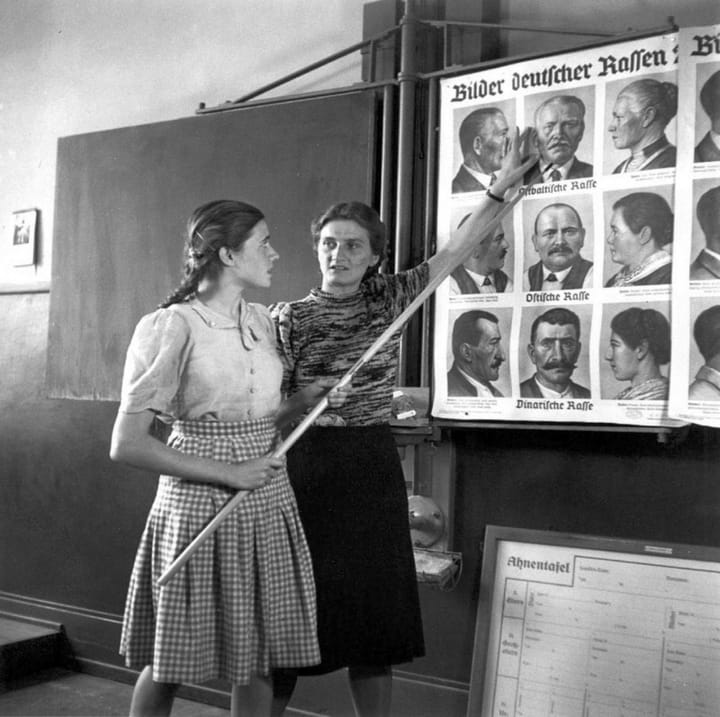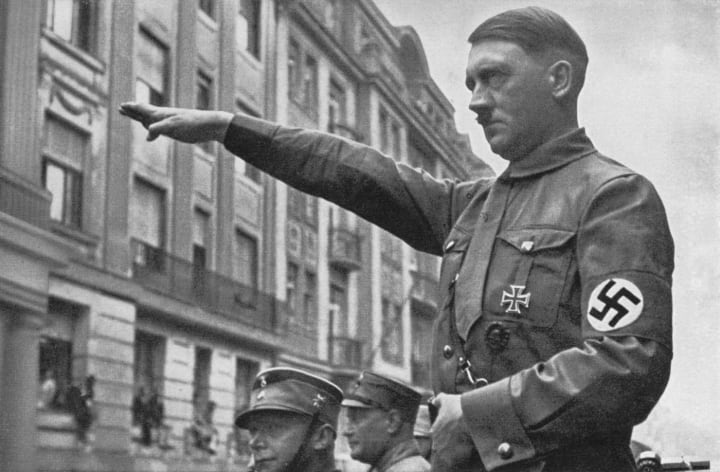10 Facts You Didn't Know About Life in Nazi Germany
Even most avid history fans don't realize what life in Nazi Germany was really like. It might shock you.

If you read through most books about World War II, you probably will have a very vivid picture of what Nazi Germany was like. Some of your assumptions might be correct, while others might be far more off-base than you'd ever believe.
You may rightfully imagine that Jews, non-whites, and homosexuals were terrified to walk through the streets. You might have also learned that there were rumors of people disappearing during daily life, never to be seen again.
You may also correctly believe that Nazi propaganda was very heavy-handed and permeated much of everyday life. And, you would be right that even children internalized the hatred Nazis spewed.
Even though these assumptions were very spot on, there still were many facets of life in Nazi Germany that people tend to be mistaken about. Here are some that would surprise even the biggest history buff.
War propaganda really wasn't all war movies.

There is a very heavily-touted belief that Nazi propaganda was almost entirely made of war movies. Though there were several well-known war movies that worked as propaganda for the Germans, the truth is that the Nazi regime was aware that people didn't want to think about war too often.
Believe it or not, many Nazi propaganda movies involved comedies and other lighthearted topics. The idea behind them was to sell Nazism as the backdrop for a paradise. Nazi propaganda and the bandwagon effect made it easy to get people to believe in the political party when they showed off happy families.
The average German really didn't thrive during Nazi rule.
The common tale you'll hear people say was that Hitler made Germany thrive under his rule, and that's why people backed him. The truth was actually very different.
One of the facts you didn't know about Nazi Germany is that most people were struggling pretty badly during the war. One man who grew up in Nazi Germany explained that he didn't see people buy a dozen eggs until he came to America:
"I was 24 years old, and I'd never seen eggs by the dozen. In our home, even as a banker, my father on Sunday got one egg. And my brother and my sister and I, three children, we shared one egg." - Horst
Hitler rose to power because he promised people that they would be able to eat better and avoid starvation if he took over other parts of Europe. This obviously turned out to be a lie:
"Milk, eggs, it was almost impossible to get [them] during the war, because people were robbed on the way in by civilians who were hungry... Milk and eggs didn't go to warehouses, they came from the farmland and they were intercepted." - Horst
Some German children didn't know about the Holocaust until after the war.

With all the rumors that swirled about death camps, you'd think that knowledge of the Holocaust was fairly common, right? Well, not quite. One of the facts you didn't know about Nazi Germany is how well they hid the gruesome details of the killings from the public.
There was a lot of talk about the "Jewish question," but the truth is that the Nazi regime never openly admitted to creating death camps. As a result, some children just didn't know what was going on until after the camps were all liberated.
During the 1930s, the Nazi Party hid their anti-Semitism pretty well.
Adolf Hitler is the name people think of when they hear the word "anti-Semite." What people don't realize is that there was a brief period in Nazi Germany where the party stopped being openly anti-Semitic, even though they still quietly passed rules to disenfranchise Jews, Roma, and homosexuals.
The reason they did this was to gain global acceptance and to ensure that they could participate in the Olympics. It was a carefully-coordinated ploy. Once they got the acceptance they wanted, they started to become openly genocidal once more.
(Author's Note: This should be a warning considering the times we're facing today. Be careful who you vote for!)
Adolf Hitler wasn't as universally adored as people thought he was.

Most people who read World War II books assume that Hitler was the German people's idol, and even go so far as to think that he was universally liked by Germans. This actually wasn't true; many people knew he was evil. It's one of the little known facts about WWII.
In the beginning of his rule, many people marched against him and protested his policies. However, as his rule began to tighten around the land, they became too scared to speak out.
They saw what happened to those who were vocally anti-Hitler; they often would disappear and die. So, many of those who hated his ideals stayed silent.
Nazis and women who were low on money were allowed to participate in a breeding program for cash.
One of the sicker aspects of life in Nazi Germany was the fact that Hitler helped create "baby farms" to help raise more Nazis. These farms would provide food, money, entertainment, and medical care for women who fit the Aryan mold.
In exchange, the women had to give birth to babies via approved Nazi party members and surrender the baby to the state. Men who were in the Nazi regime, even married ones, would go there and mingle with women until a woman would choose them to father a child.
Students were taught race biology as part of their schooling.

Remember when I said that Nazi propaganda was pervasive? It's true, and was even taught in school. Schoolteachers were required to discuss eugenics and race biology with children as young as six years old.
Nazi propaganda found its way into just about everything that was taught. Even math problems would be based on Nazi ideals. Nothing in the curriculum was safe, which meant Nazi schooling was brainwashing.
There were legitimate reasons why Jews remained in Germany during Adolf Hitler's rise to power.
Most people wonder why there were so many Jews who chose to remain in Germany, despite many warning signs of danger in the future. Perhaps the most striking facts you didn't know about life in Nazi Germany are the ones that should be obvious, but aren't.
People never want to leave their homes, and the truth is that uprooting your entire family is extremely difficult. Many people couldn't legally leave, would lose everything they owned, or felt that it would never get to the point of genocide. They stayed because they trusted people to be humane to them.
Everything, even vacations, were controlled by the state.

If you can't guess from the rest of the facts on this list, the Nazi regime wanted to control every little aspect of life. This, shockingly, included German spending habits and vacation time.
The Nazi organization "Strength Through Joy" was known for providing affordable vacation time for German citizens. Germans also were expected to go into a payroll deduction program to get a down payment on their first Volkswagen.
Everything was noted and obeyed; even something as casual as wearing sandals to the wrong event could cause you to get lethal punishment. Uniformity was not only encouraged; it was enforced.
Germans became increasingly desperate as the war went on.
People often point out that Nazi Germany gave better employment rates and better economic standing for many Germans. However, that's only a small glimpse of the truth behind life in Germany.
The real facts you don't know about life in Nazi Germany are way darker. People, including Germans, were terrified of the government. The longer the war waged on, the more people struggled to make ends meet.
Germans and Jews alike lost their homes and lived in fear. Some Germans would commit suicide after the war, once the full damage that their country caused was brought to light.
At the end of the war, Germany was completely and utterly destroyed—and it's pretty clear Nazism was what broke the country. Now, we're only left with what the history books have said and survivor stories from those who made it out.
About the Creator
Buddy Brown
Detroit-born Buddy Brown is a 80s hair metal fan who loves cars, games, and sports. When he’s not drinking PBR while listening to Downtown Brown, he’s playing Grand Theft Auto or working on his El Camino.






Comments
There are no comments for this story
Be the first to respond and start the conversation.